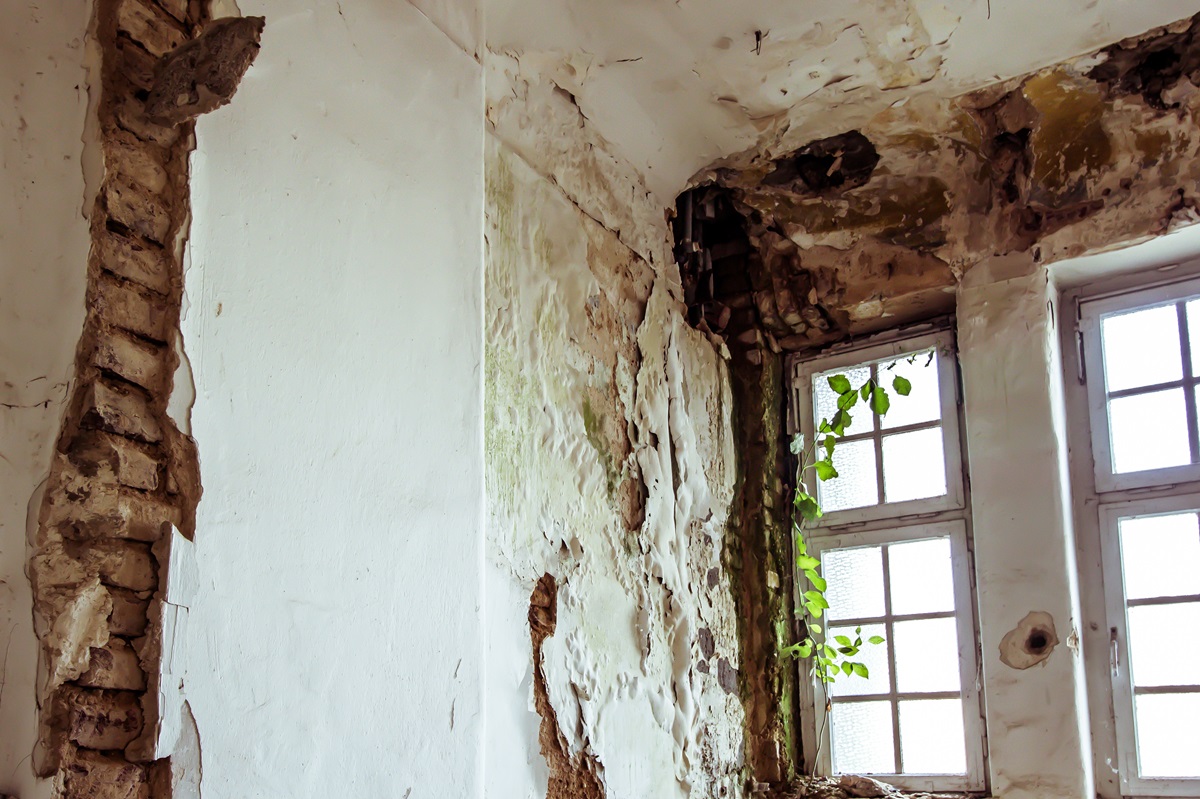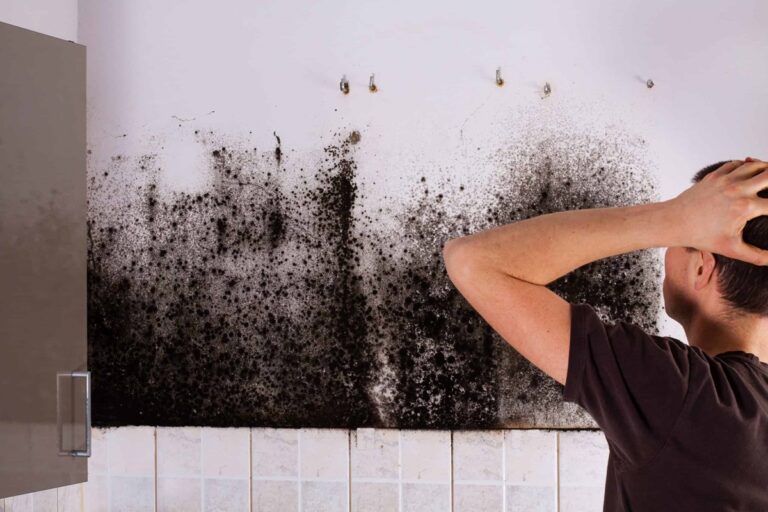What Factors That Affect Your Home
Several factors can affect your home, especially when it comes to mold growth. Mold can be caused by excess moisture, leaks, or high humidity levels. If not addressed, mold can spread and cause damage to your home’s structure, furniture, and belongings. It can also lead to health problems for the people living in the home.
Other factors that may lead to mold issues include poor ventilation, blocked gutters, and a lack of regular home maintenance. Even the climate you live in can play a role, as areas with frequent rain or humidity are more prone to mold. It’s important to identify and address these factors early to prevent mold from becoming a bigger problem. Homeowners can protect their homes by knowing what causes mold. This will help them maintain a healthy living environment; then they need professional mold removal.
Expose The Signs Of Mold In Your Home
Recognizing the signs of mold in your home is crucial to addressing the problem before it worsens. Mold often appears as black, green, or white spots on walls, ceilings, or floors. You might also notice a musty smell, which can be a strong indicator of mold growth. Other signs include peeling paint, warped walls, or water stains that suggest moisture is present.
Sometimes, you may not see the mold. But, family members may have health problems like sneezing, coughing, or skin rashes. These symptoms can be caused by mold spores in the air. To confirm if you have mold in your home, you may need to get mold testing Maine services. Testing will help you identify the type and extent of mold present, so you can take the necessary steps to remove it and keep your home safe.
Health Risks Of Mold Exposure
Mold exposure can harm health, especially for those with allergies, asthma, or weak immune systems. Breathing in mold spores can lead to respiratory problems, such as coughing, wheezing, and shortness of breath. Some people may also experience skin rashes, eye irritation, or sinus congestion. In severe cases, mold exposure can cause infections or toxic reactions, leading to more serious health issues.
Children and the elderly are particularly vulnerable to the effects of mold, so it’s important to address any mold issues in your home promptly. Long-term mold exposure can lead to chronic health problems, making it essential to remove mold as soon as it is detected. Knowing the health risks of mold can help you protect your family and keep your home healthy.
Extent Of Mold Infestation
The extent of mold infestation in your home can vary from a small, localized area to widespread contamination. Small mold problems, like those found in bathrooms or under sinks, can often be managed with regular cleaning. But, if the mold has spread to larger areas, such as walls, ceilings, or floors, it may need professional help.
Mold can grow behind walls or in hidden places, making it difficult to know the full extent of the problem without proper inspection. The more widespread the mold is, the harder it is to remove and the more damage it can cause to your home. It’s important to assess the extent of the mold infestation to determine the best course of action. If you’re unsure about the severity of the mold problem, it may be necessary to seek professional advice to ensure that all the mold is properly removed.
Type Of Mold Present At Home
There are many different types of mold, and some are more harmful than others. The most common types of mold found in homes include Cladosporium, Penicillium, and Aspergillus. These molds can cause allergic reactions and other health problems. But, the most dangerous type of mold is Stachybotrys, also known as black mold. Black mold produces toxins that can be harmful to your health, especially if the exposure is prolonged.
Identifying the type of mold in your home is important because it determines how you should handle the situation. Some molds can be cleaned up with simple household cleaners, while others may need more specialized treatment. If you suspect that you have a harmful type of mold, it’s best to consult with a professional. They can identify the mold and recommend the appropriate removal methods. Knowing the type of mold in your home helps ensure that it’s removed safely and effectively.
Damage To Home Structures
Mold can cause significant damage to your home’s structures if left untreated. Mold thrives in damp environments, and when it grows on surfaces like wood, drywall, or insulation, it can weaken these materials over time. This can lead to structural issues, such as sagging ceilings, warped walls, or rotting wood. In severe cases, the damage can compromise the integrity of your home, leading to costly repairs.
Mold can also damage your home’s appearance, causing unsightly stains and discoloration on walls, ceilings, and floors. If mold is in hard-to-reach areas, like behind walls or under floors, it can be hard to remove without causing more damage. Hiring mold removal Maine can help. They can fix mold problems before they cause serious damage. By removing mold early, you can protect your home’s structure and prevent the need for extensive repairs.

Leak Water Pipes Cause Mold Growth
Leaky water pipes are a common cause of mold growth in homes. When pipes leak, the excess moisture creates the perfect environment for mold to thrive. Even a small leak can lead to significant mold growth if not addressed quickly. Leaks can occur in various places, such as under sinks, behind walls, or in basements. Because these areas are often hidden, the mold may go unnoticed until it has already spread.
To cause mold, leaky pipes can also lead to water damage, which can further contribute to mold growth. It’s important to inspect your home daily for signs of leaks, such as water stains, damp spots, or an increase in your water bill. Fixing leaks promptly can help prevent mold from taking hold in your home. If you do find mold caused by a leak, it’s essential to address both the leak and the mold to prevent future problems.
Dangers Of Mold In Home
Mold in the home can pose serious dangers to both your health and your property. Health risks include respiratory problems, allergies, and skin irritation. Mold spores can trigger asthma and breathing problems. This is especially true for children, the elderly, and those with weak immune systems. Long-term mold exposure can cause serious health issues. These include chronic respiratory conditions. Health risks because of mold can also cause significant damage to your home. It can weaken the structure of your house by rotting wood, damaging drywall, and corroding metal.
Mold can also ruin your personal belongings, such as furniture, clothing, and books, by causing stains and deterioration. Addressing mold problems early can help prevent these dangers from affecting your home and family. Regular inspections and prompt action, when mold is found, are key to keeping your home safe and healthy.
Hire Professional Mold Removal Service
When dealing with a serious mold problem, it’s often best to hire a professional mold removal service. Professionals have the tools, experience, and knowledge to remove mold from your home. They can identify the type of mold and assess the extent of the infestation, ensuring that all mold is removed. Professional services also have access to specialized equipment, such as dehumidifiers. They can help remove mold spores from the air and prevent future growth. Trying to remove mold on your own can be risky, especially if you’re dealing with toxic mold or large infestations. Professionals can handle the job, protecting both your health and your home. Hiring a professional mold remediation Maine service ensures that the mold is removed and that your home is safe for you and your family.
Read More: How Do You Get Rid Of A Pet Smell From House With ClO2 Tablets?




